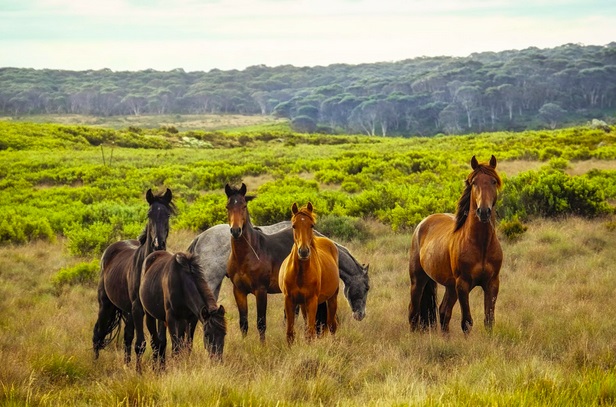4 Challenges Every Horse Enthusiast Must Know Before Getting a Horse
Horses are fast, look amazing, are plenty of fun, and make incredible companions due to their high intelligence.
However, owning them comes with a unique set of challenges. They are expensive to maintain, require labor-intensive and time-consuming care, and are generally high maintenance. Since they are living beings, they are also affected by illness and can be sensitive if not adequately cared for. Here are four challenges that come with horse ownership and how to handle them for the best experience.

High Acquisition And Maintenance Costs
Buying a horse will cost anything from a few hundred to several thousand. This depends on factors like its level of training and manners, breed and pedigree, and performance record.
The average cost of owning a horse can vary from between $2,500 to $3,800 or more.
Horses need many accessories to stay in top shape, including feeding equipment like troughs, pans, containers, heated buckets or heaters during winter, and feeding supplies like hay.
They also require grooming kits like blankets, horseshoes, combs, brushes, halters, and picks. You will also need sufficient space for their accommodation needs, such as wheelbarrows, pork, and manure forks.
Horse riding also calls for gear like saddles, bridles, blankets, helmets, and many others. Equine healthcare is also quite costly, with charges for foot pain, for instance, ranging from $1,200 to $1,500. These are the charges for routine care and treatment. These charges shoot when it comes to emergency medical care. You will also incur extra costs to hire a professional to train your horse.
Diseases
Equine Influenza is a common viral infection similar to the flu that affects humans. It spreads rapidly with sudden onset symptoms and is available in several strains due to mutation. Some common symptoms include thick and frequent nasal discharge, coughing, fever, and reduced or lack of appetite. Luckily, the virus can't be transmitted from horse to human.
You can also protect your horses from Equine Influenza by vaccinating them using the latest vaccines. If infected, ensure your horse gets sufficient rest and monitor for other symptoms, as it can quickly develop into other respiratory complications like pneumonia.
Another severe condition affecting horses is Equine Protozoal Myeloencephalitis. EPM is a life-threatening condition that attacks the horse's central nervous system resulting in poor muscle coordination, weakness, and impaired muscle tone and function. The condition is linked to high-stress levels and should be treated immediately to avoid disability or death.
Demanding Training
Horses are stubborn, which means training one can take a toll on you. Training them requires consistency and hard work, which may be challenging for someone with a busy schedule. The average time that most horses need to be fully trained is about 10 to 16 months. The duration could be longer, depending on your level of training expertise. Training is especially more challenging on older horses that have already learned behaviors that may seem unpleasant to you.
Emotional Bonds
Horses are known for forming long-lasting bonds with their carers which can last for years. One main challenge is that most horse owners or carers eventually have to let go of their horses. Letting go can be devastating and hard for both the horse and the owner. It is crucial to adequately prepare before getting a horse to avoid frustration for you and your horse. An excellent place to start is by ensuring you can provide the horse with basic amenities like boarding, food, and medical care.
Ensure you look into the costs of maintaining the horse and your plans, whether for companionship or racing, among other options. Despite the mentioned challenges, horse ownership has a lot to offer, including making a lifelong friend.
- The record in the horse world
- Legendary horse breeds on icy islands
- Little known thing about 'famous' horses in the Vietnam War
- The law explains why sometimes we say we want to achieve something but give up a few days later
- Great prehistoric mystical projects
- Animals also recognize themselves in pictures
- The 'hybrid' horse
- Predict the horse race by mathematical model
- Found in the fortress of a 2,000-year-old horse carriage
- Horses roll out dead to hide riders
- The highest horse and the world's shortest horse
- 5 scary horse monsters in ancient tales
 The man who raised his hand for more than 45 years for an unexpected reason
The man who raised his hand for more than 45 years for an unexpected reason Extremely precious series of photos about China 100 years ago
Extremely precious series of photos about China 100 years ago Only people with IQ above 140 or ... Conan can solve this case, what about you?
Only people with IQ above 140 or ... Conan can solve this case, what about you? See foreign farmers killing weeds with ... sprayers
See foreign farmers killing weeds with ... sprayers Horse Diving: A Dangerous, Cruel Sport in the 19th Century
Horse Diving: A Dangerous, Cruel Sport in the 19th Century  Top 4 legendary war horses recorded in history books
Top 4 legendary war horses recorded in history books  Illusion video causes netizens to debate: Is the horse moving closer or farther away?
Illusion video causes netizens to debate: Is the horse moving closer or farther away?  Akhal-Teke - The most beautiful horse in the world, with red sweat like blood
Akhal-Teke - The most beautiful horse in the world, with red sweat like blood  The Trojan Horse: Real or Legendary?
The Trojan Horse: Real or Legendary?  The famous horse in Vietnamese history
The famous horse in Vietnamese history 